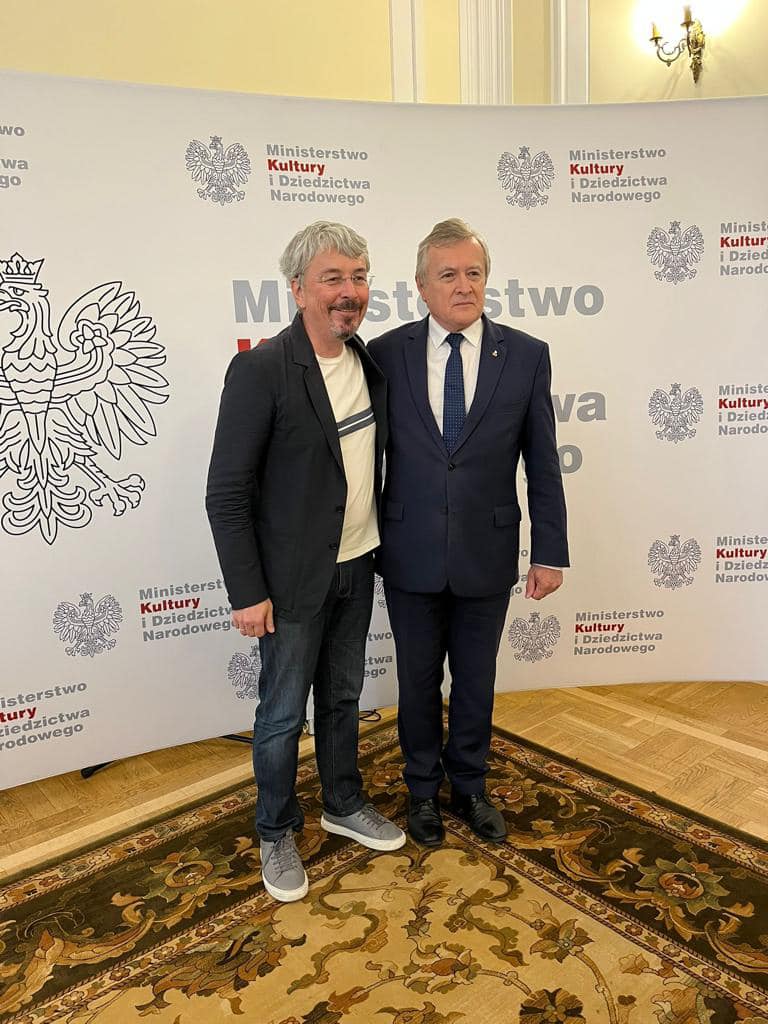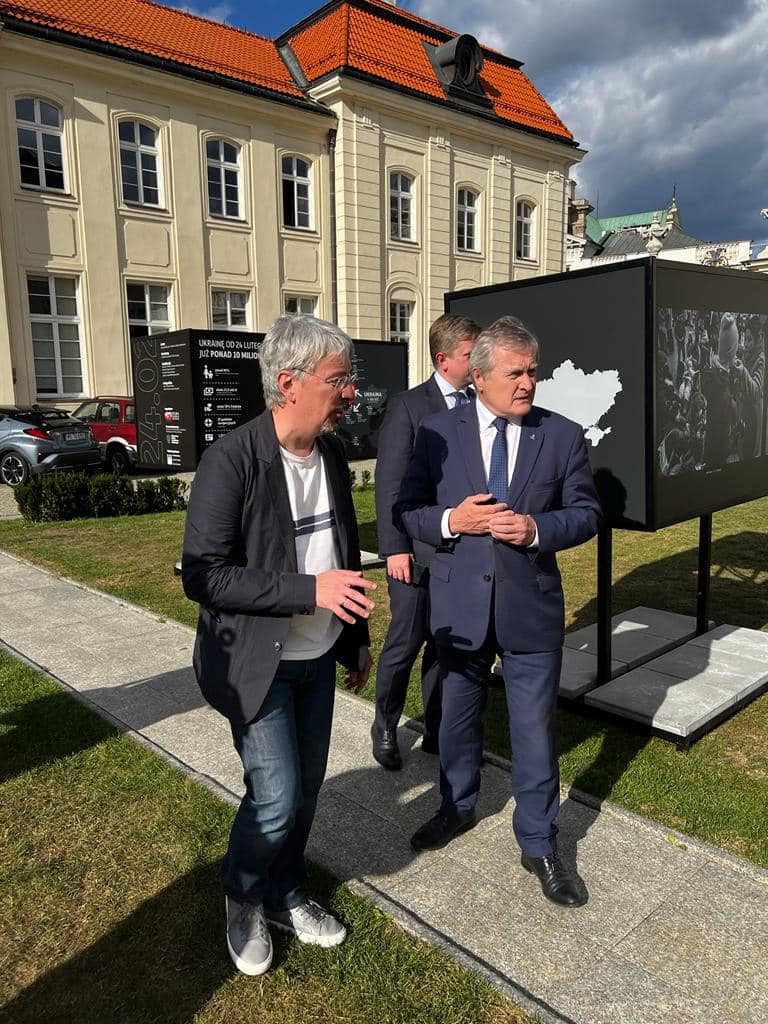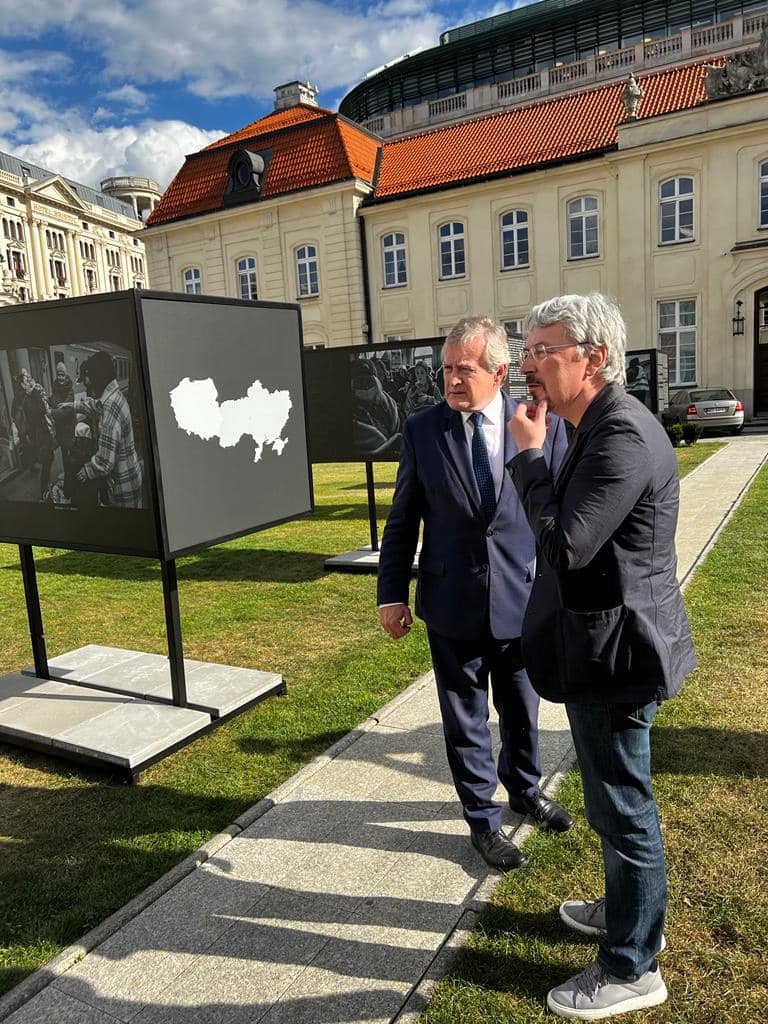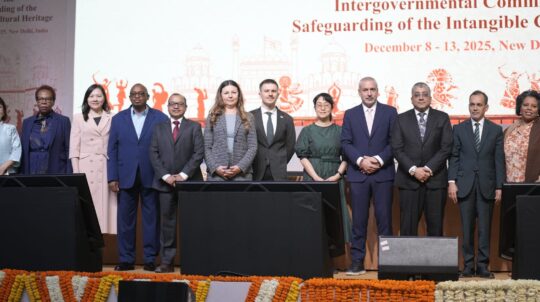On August 31, Oleksandr Tkachenko, Minister of Culture and Information Policy of Ukraine, visited Poland after his working meetings in France and Germany. In Warsaw, the Ukrainian Minister met with Piotr Gliński, Vice-Prime Minister, Minister of Culture and National Heritage of Poland, a great friend of Ukraine. Among the discussed topics were the development of culture and media support tools in Ukraine and the results of negotiations in Paris and Berlin.

“Informed Mr. Gliński about the results of negotiations with French and German colleagues. We outlined an action plan concerning further joint cultural actions of Ukrainian and Polish cultural figures, as well as an initiative within the EU regarding a fund of immediate aid to the culture and media of Ukraine in the amount of 250 million euros,” said Oleksandr Tkachenko, Minister of Culture and Information Policy.
In a conversation with the Polish colleague, Oleksandr Tkachenko underlined that the negotiations with the Minister of Culture of France were held in a good atmosphere, and it seems that they will soon turn into concrete actions, but Germany’s attitude is disappointing, and he called a misunderstanding the transferred funds to the russian opposition media as aid to Ukraine.

During the meeting, there was talk of supporting Ukraine’s efforts in the international arena, especially in the field of media and heritage protection, as well as joint artistic projects, such as the Ukrainian Freedom Orchestra: on the one hand, it would popularize Ukrainian culture, and on the other hand, it would remind the world about ongoing war and would help raise funds for artists and cultural institutions of Ukraine.
One of the topics of the meeting was also the activities of the Polish Cultural Support Center in Ukraine and the possibilities of its use to provide assistance necessary for the protection of Ukrainian sites and cultural institutions before the upcoming winter season in connection with the destruction caused by military actions.
For reminding, Poland, together with Lithuania and Slovakia, actively help the culture and media of Ukraine during the war. They initiated the imposition of sanctions against russian TV channels, became cultural hubs for many Ukrainian institutions and cultural figures, and also constantly initiate additional attention to Ukrainian culture and media.


